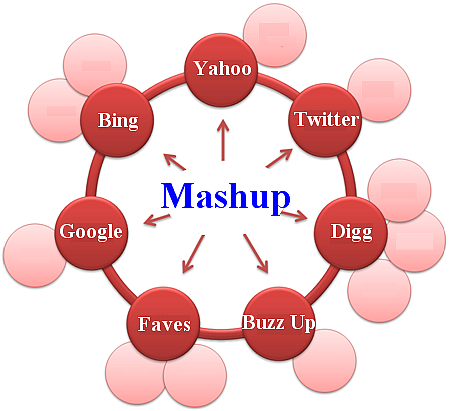Get Aggregated Search Results from Browsers, Social Networks
Integrated Metadata - Social networking sites have exploded and there are also thousands of website browsers that you can use to get the information you want. Recently there has been a proliferation of niche browsers for very specific topics that deliver more targeted research information.
We don't really need more browsers and more social bookmarking sites - the information highway is already too complicated and jammed with traffic.
Often when conducting research you will use many search tools and you will often have to manually plow through the listings to find what you want. Now there must be a better way!
We need tools that integrate and combine the information from a variety of sources - both browsers and social sites and deliver a combined summary - eliminating the duplicates. This integrated of information is likely to deliver better results because it avoids the biases of the individual sites such as Google and Bing with their secret ranking systems. Sites that integrate and combine information are referred to as 'mashups'. This article is about Mashups.


Integrating the Information Stream



What is a mashup?
The term was originally used for music and described the practice where two or more songs are mixed to become one.
In computing, a mashup is a tool that combines information from two or more Web site services, such as Bing, Yahoo, Twitter, Flickr, MSN, eBay, Google, and others to present integrated information that is more convenient and meaningful and hopefully provides better search information.
The term mashup implies quick, fast integration producing enriched result summaries.
Perhaps the oldest and best known multiple source web browsers are dogpile, webcrawler and alltheweb. Dogpile and Webcrawler return the results from the leading search engines including Google, Yahoo!, Bing and Ask.
Recently several newer sites have begun to combine traditional web searches with results from social bookmarking sites.
For example Fuzzfind combines data from Google, Bing, Yahoo and Delicious.
Mashups are a growing new trend in website development with about 5000 mashups being listed, mostly for very specific topics and applications.
SenseBot has taken this concept to a new level by generating a text summary from multiple Web pages on your research topic of your search query. It uses text mining and integration software to summarize the information. It also presents a "Semantic Cloud" of concepts allowing the user to find the specific information required.
Developing mashups can be quite challenging as the various providers of the information make it complicated and hard to get their data.
Also it is difficult to create the application that will integrate the information quickly. Google is especially difficult as there are several bugs in its search API which are never fixed.
The list of results delivered by the API are different from those produced by a Google Search.
© 2010 Dr. John Anderson







